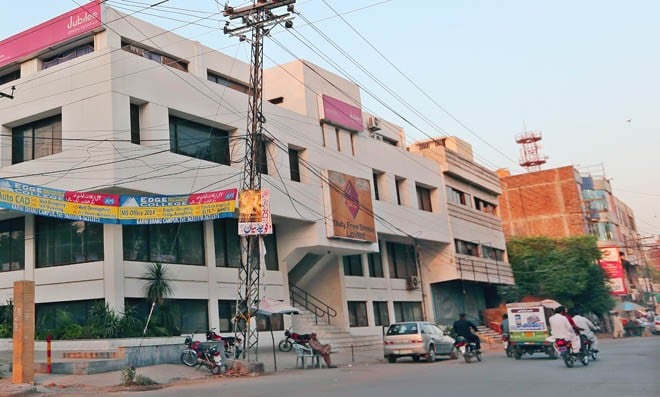

One evening four unknown men entered and robbed goldsmith Obaid Iqbal’s High Class Trading Company on Cooper Road in Lahore. They took away 10 kilogrammes of gold and 172,000 UAE dirhams. After coming out of shock, Obaid went to the police station in Qila Gujjar Singh and filed an FIR against unknown persons.
After some investigation, the police was able to identify the culprits. An FIR was lodged against Shahbaz Khan, Gohar Ali, Abdul Khan (also called Qadeem Khan), Ashfaq (Mochha), Siar Khan, Fakhr Hayat and Muhammad Abbas (Fauji). The culprits were traced in KPK and a raid was organised.
The robbers, except Abbas Ali Fauji, belonged to KPK. However, the police could not arrest them immediately because of the barrier of territorial jurisdiction. Muhammad Jahangir was appointed as the investigation officer (IO) who submitted the case to district police officer (DPO) for approval. During this process, the DPO referred the matter to Inspector General Legal Punjab to fulfill legal requirements for crossing the inter-provincial border. The IG Legal, after probing into the legality of the matter, sought permission from the Home Department Punjab.
The Home Ministry gave the permission and informed the Home Department of KPK. The matter was returned to the police.
A team under the supervision of DSP Organised Crime CIA was deputed. This raiding team approached KPK police according to the procedure and went through tiresome red tape. Finally, with the help of political agent and elders of the tribes, the culprits were arrested from KPK.
The arrested criminals were presented before the competent court of KPK. After getting permission of Home Departments of KPK and Punjab robbers were brought to Lahore for identity parade (shanakht parade).
The process of arresting the culprits was tedious. Obaid Iqbal had to visit the police station many times. He had to keep his shop closed for 69 days, and lost 1.3 kilogrammes of gold and 2,000 UAE dirhams. For, the police were able to recover 8.69 (of a total of 10kg gold) kilogrammes of gold and 170,000 (of a total of 172,000) UAE dirhams.
When the writer visited Obaid’s shop, it was closed. Some people present at the spot said that the owner of the shop had wrapped up the business and left Lahore.
This case exposes loopholes in inter-provincial laws and procedure. DIG Investigation Zulfiqar Hameed says, "There is need to amend the Code of Criminal Procedures (CrPC), which was conceived in the light of colonial requirements".
Hameed says all police stations of Pakistan should have access to internet. "If a crime is committed in one province and criminals escape to another province, modern methods of communication should be utilised and criminals should feel encircled by police of Pakistan as one unit. Crime must be defeated by joint efforts", he adds.
Assistant Inspector General Legal Punjab Police, Shafique Gujjar, says, "We cannot enter the jurisdiction of another province without the permission of the Home Department, no matter how critical is the situation".
He says, Punjab Police had moved 580 cases to the Home Department in 2013 regarding accused persons hiding in other provinces. 215 cases were moved to the Home Department in which heinous crimes like kidnappings and murders were involved.
DIG Dera Ismail Khan, Abdul Ghafoor Afridi, says failure in inter-provincial raids in majority of the cases is due to the presence of "black sheep" in the police department - "as raiding party starts journey from one province to the other, criminals are informed by corrupt policemen and they change their hiding places".
Legal expert Syed Nisar Safdar Advocate believes CrPC should be amended but it is difficult as the local influential would not let that happen as the amended CrPC will reduce his power in the area. If the police from another province comes to arrest people in his area it will be a matter of shame for him, he says.
Member of Punjab Assembly N-League from Shakargarh, Maulana Ghayasuddin says the bureaucracy poses hindrance in the way of amendments in CrPC because they don’t like one police officer to interfere in the other officer’s territory. "They are kings in their respective areas. In 1985, Junejo government tried to get a bill passed in the parliament that CSS officers must be appointed in the centre while PMS in the provinces but nothing happened due to resistance from the bureaucracy. Ties of politicians with the bureaucracy are lethal for the society. Laws will improve when attitudes will improve," he says.